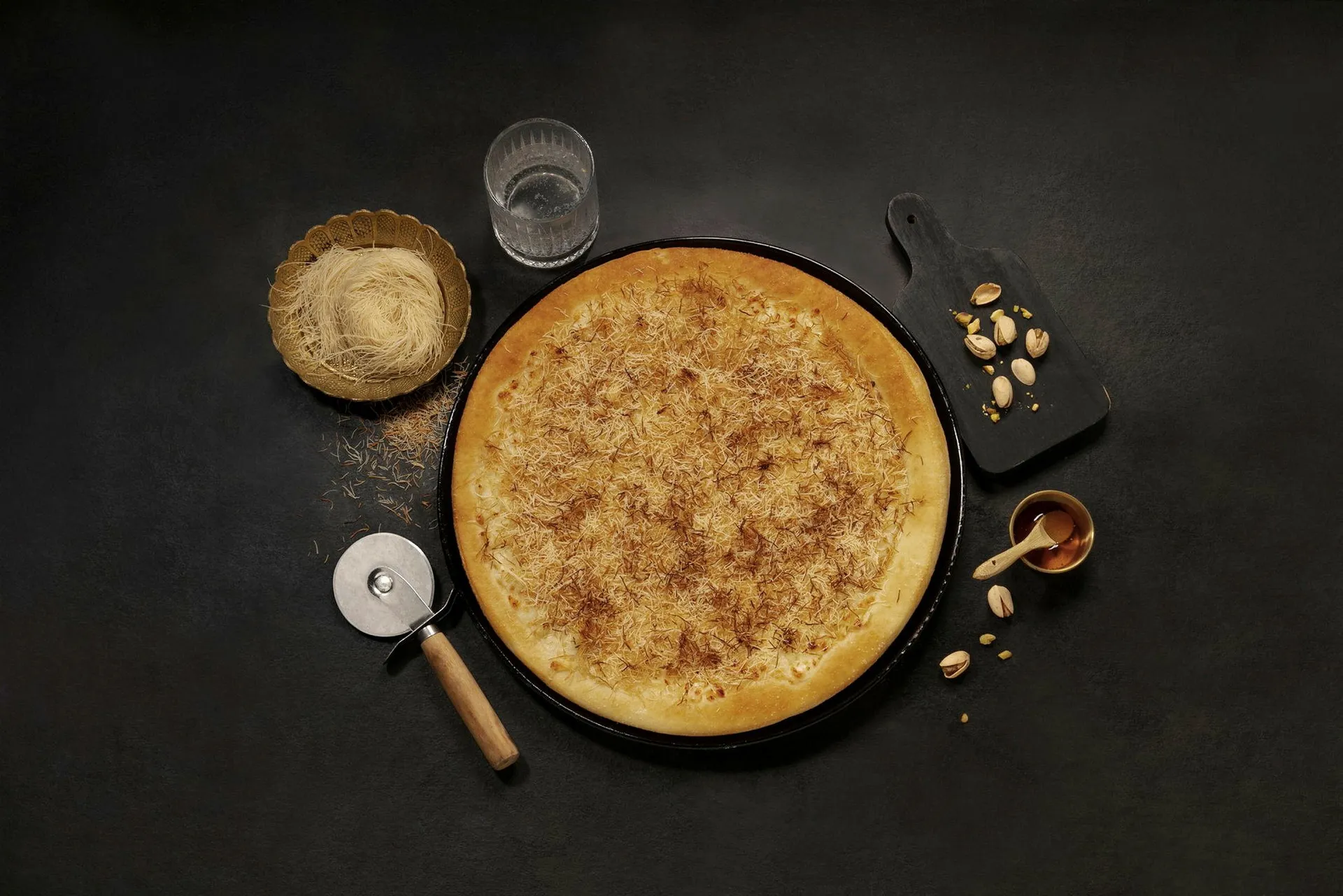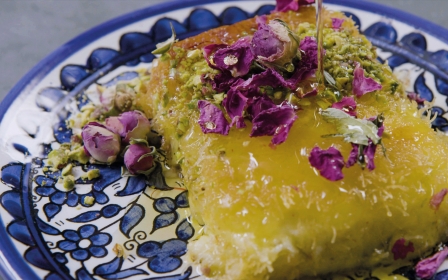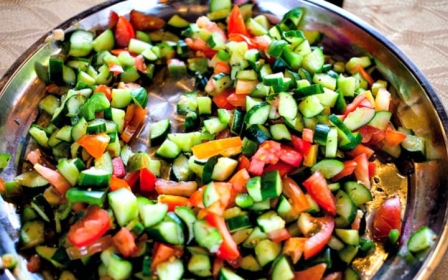Pizza Hut Israel’s new kunafa pizza upsets Arabs and Italians

Pizza Hut Israel's new creation has left Italians and Arabs around the world feeling "insulted".
Announced last month, Pizza Hut says their new ‘Kunafa pizza’ is made from a “crazy cheese mixture dough, kadayif hairs, and sugar water”. It also comes with ground pistachios on the side.
However, the international chain did not quite get the reaction they were expecting to receive. The dish has been slammed online with people labelling it an "abomination".
According to the press release, the pizza franchise was excited to put its own twist on the pan-Arab dessert.
“Pizza Hut recognized the unrealized potential of this irresistible Middle Eastern food, and decided to make its own version,” it said.
New MEE newsletter: Jerusalem Dispatch
Sign up to get the latest insights and analysis on Israel-Palestine, alongside Turkey Unpacked and other MEE newsletters
The pizza comes in two sizes and combines different cheeses, including mozzarella, ricotta, and Tzfat along with the finely shredded phyllo dough which is traditionally used to make the dessert.
Cultural appropriation
Social media users called out the creation, labelling it as the latest example of cultural appropriation.
Kunafa is enjoyed around the Middle East, with the method and filling varying slightly depending on where in the region it’s made. In Palestine, the sweet treat is enjoyed as a street food, or for more elaborate occasions such as weddings, as well as being served to friends and guests.
Many believe that the orange-coloured dessert originates from the West Bank city of Nablus. It is traditionally made with slightly salted white brine Nabulsi cheese and is prepared in a shallow dish.
Palestinians have reacted with deprecating humour online, joined by Italians who also say that the twist on the pizza is "insulting".
Renowned French-Palestinan chef Fadi Kattan, who recently opened a restaurant in London’s Notting Hill, weighed in on the conversation.
“The latest in the bad taste and culinary appropriation,” he wrote on Instagram on 8 December. The chef stated that Nabulsi Kunafa was a "sumptuous dessert" that has been celebrated around the world and "inscribed in its tradition".
“To add insult to the injury, among the cheeses used, of course none are Nabulsi cheese,” he added, to hundreds of comments which labelled the creation as "outrageous" and called on the franchise to stop selling it.
This is not the first time the cultural appropriation of food has caused a stir online.
In 2019, an article in Haaretz labelling shawarma as an "iconic Israeli street food" was ridiculed online.
Social media users called out Israel for trying to claim Arab and north African food and culture.
Many pointed out that such moves erase the historic and cultural ties behind certain foods and misinform people.
This article is available in French on Middle East Eye French edition.
Middle East Eye delivers independent and unrivalled coverage and analysis of the Middle East, North Africa and beyond. To learn more about republishing this content and the associated fees, please fill out this form. More about MEE can be found here.




